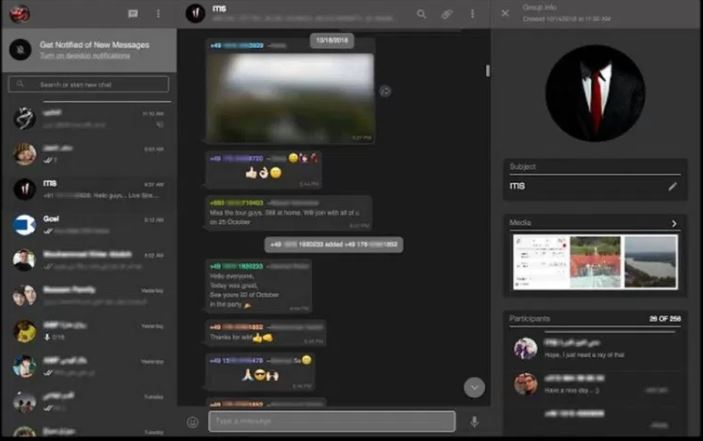The Magic Behind WhatsApp Calls
페이지 정보
작성자 Latia Reece 작성일25-04-23 05:59 조회55회 댓글0건관련링크
본문
WhatsApp, one of the most popular instant messaging applications, has revolutionized the way communications. One of the major innovations behind has made WhatsApp so popular among users is its cost-effective and crystal-clear voice and video calling feature. But have you ever wondered how behind this feature? In this article, we will delve into the complex technology behind WhatsApp calls, also known as Internet-based Voice Technology.
In this article, we will delve into the complex technology behind WhatsApp calls, also known as Internet-based Voice Technology.
VoIP technology has been around for many years, but its widespread adoption has been made possible by the significant increase in the availability of fast and reliable networks and powerful mobile devices. The underlying concept is to transform voice signals into digital data packets that can be transmitted over the internet.
When you make a call on WhatsApp, your device converts your voice into digital data packets and sends them over the internet to the recipient's device. This process is known as encoding, where audio signals are converted. where the analog audio signal is repurposed as a digital format using algorithms such as Opus or AMR-WB. The encoded data is then split into smaller units, each with a specific header that contains information such as the packet sequence number, source and destination IP addresses, and other metadata.
The packets are then transmitted over the internet through a process called data transmission, where each packet is routed to its destination based on its header information. This allows multiple conversations to take place simultaneously over the same network without disturbing other communications.
At the receiving end, the packets are recreated from the digital data into the original audio signal using the same algorithms used at the sending end. The decoded audio signal is then played back through the device's speakers, allowing the recipient to hear your voice.
One of the key technologies that enable WhatsApp calls to work seamlessly is the Session Initiation Protocol (SIP). SIP is a signaling protocol that allows devices to facilitate and coordinate communication for real-time services such as voice and video calls. SIP works by creating a connection between the two devices, which includes configuring the audio settings and selecting the appropriate audio compression algorithms.
Another important technology that enables WhatsApp calls to be reliable and dependable is the protocol for efficient data transmission. RTP is a protocol that allows for real-time data transmission over IP networks, including video and audio content. RTP ensures that data is delivered in a timely manner, with minimal degradation and delay.
In addition to these technologies, WhatsApp also employs advanced algorithms for noise reduction and echo cancellation, which greatly enhance the listening experience. This ensures that your voice is clear and crisp, whatsapp电脑版 even in noisy environments.
 In this article, we will delve into the complex technology behind WhatsApp calls, also known as Internet-based Voice Technology.
In this article, we will delve into the complex technology behind WhatsApp calls, also known as Internet-based Voice Technology.VoIP technology has been around for many years, but its widespread adoption has been made possible by the significant increase in the availability of fast and reliable networks and powerful mobile devices. The underlying concept is to transform voice signals into digital data packets that can be transmitted over the internet.
When you make a call on WhatsApp, your device converts your voice into digital data packets and sends them over the internet to the recipient's device. This process is known as encoding, where audio signals are converted. where the analog audio signal is repurposed as a digital format using algorithms such as Opus or AMR-WB. The encoded data is then split into smaller units, each with a specific header that contains information such as the packet sequence number, source and destination IP addresses, and other metadata.
The packets are then transmitted over the internet through a process called data transmission, where each packet is routed to its destination based on its header information. This allows multiple conversations to take place simultaneously over the same network without disturbing other communications.
At the receiving end, the packets are recreated from the digital data into the original audio signal using the same algorithms used at the sending end. The decoded audio signal is then played back through the device's speakers, allowing the recipient to hear your voice.
One of the key technologies that enable WhatsApp calls to work seamlessly is the Session Initiation Protocol (SIP). SIP is a signaling protocol that allows devices to facilitate and coordinate communication for real-time services such as voice and video calls. SIP works by creating a connection between the two devices, which includes configuring the audio settings and selecting the appropriate audio compression algorithms.
Another important technology that enables WhatsApp calls to be reliable and dependable is the protocol for efficient data transmission. RTP is a protocol that allows for real-time data transmission over IP networks, including video and audio content. RTP ensures that data is delivered in a timely manner, with minimal degradation and delay.
In addition to these technologies, WhatsApp also employs advanced algorithms for noise reduction and echo cancellation, which greatly enhance the listening experience. This ensures that your voice is clear and crisp, whatsapp电脑版 even in noisy environments.
댓글목록
등록된 댓글이 없습니다.

